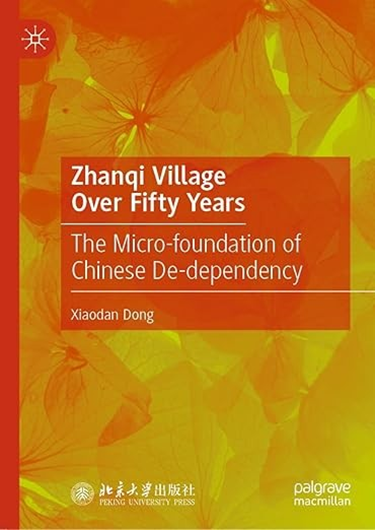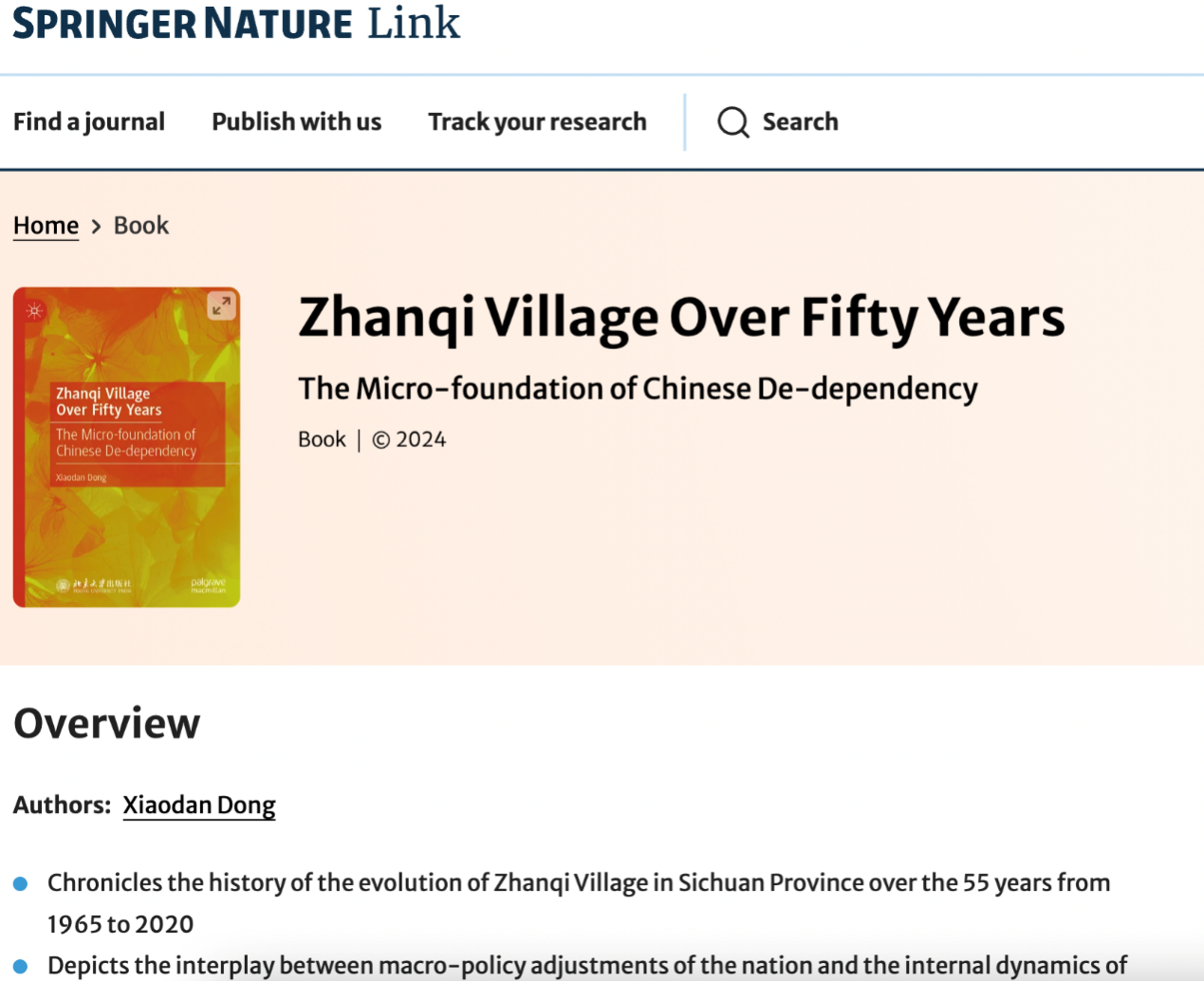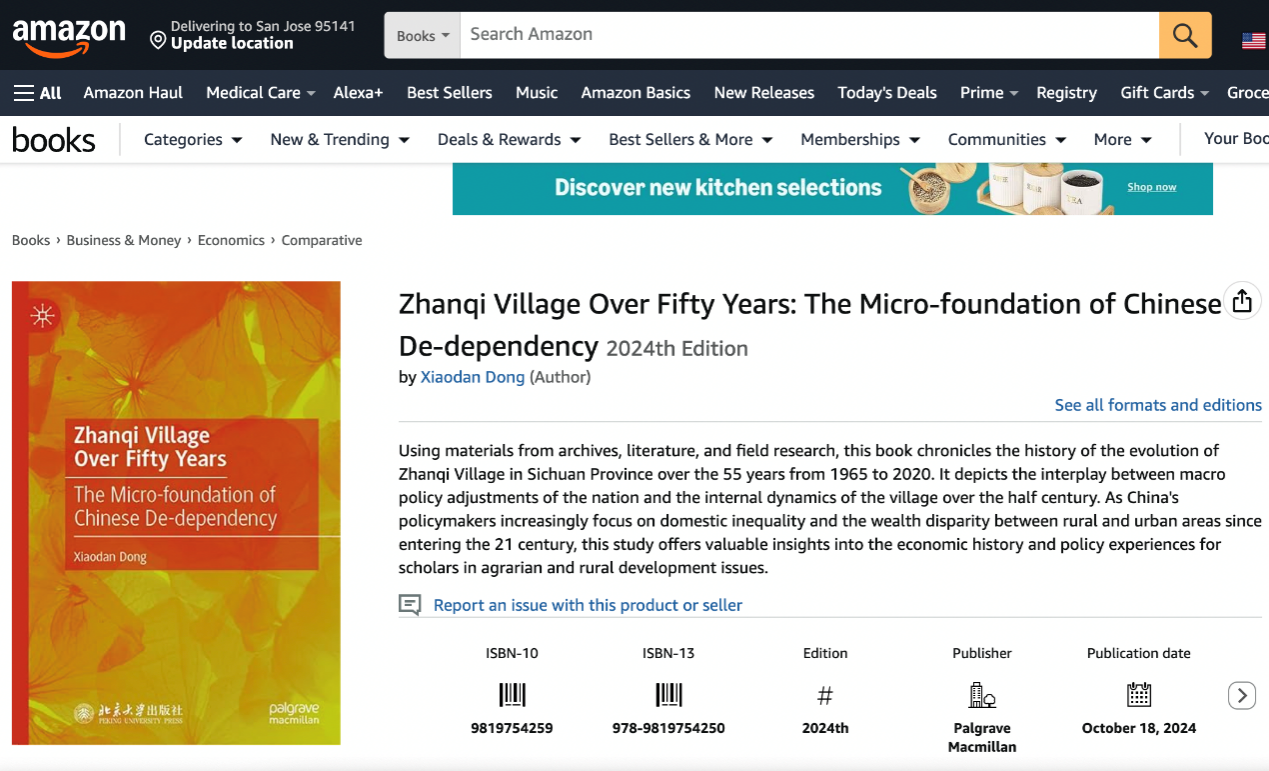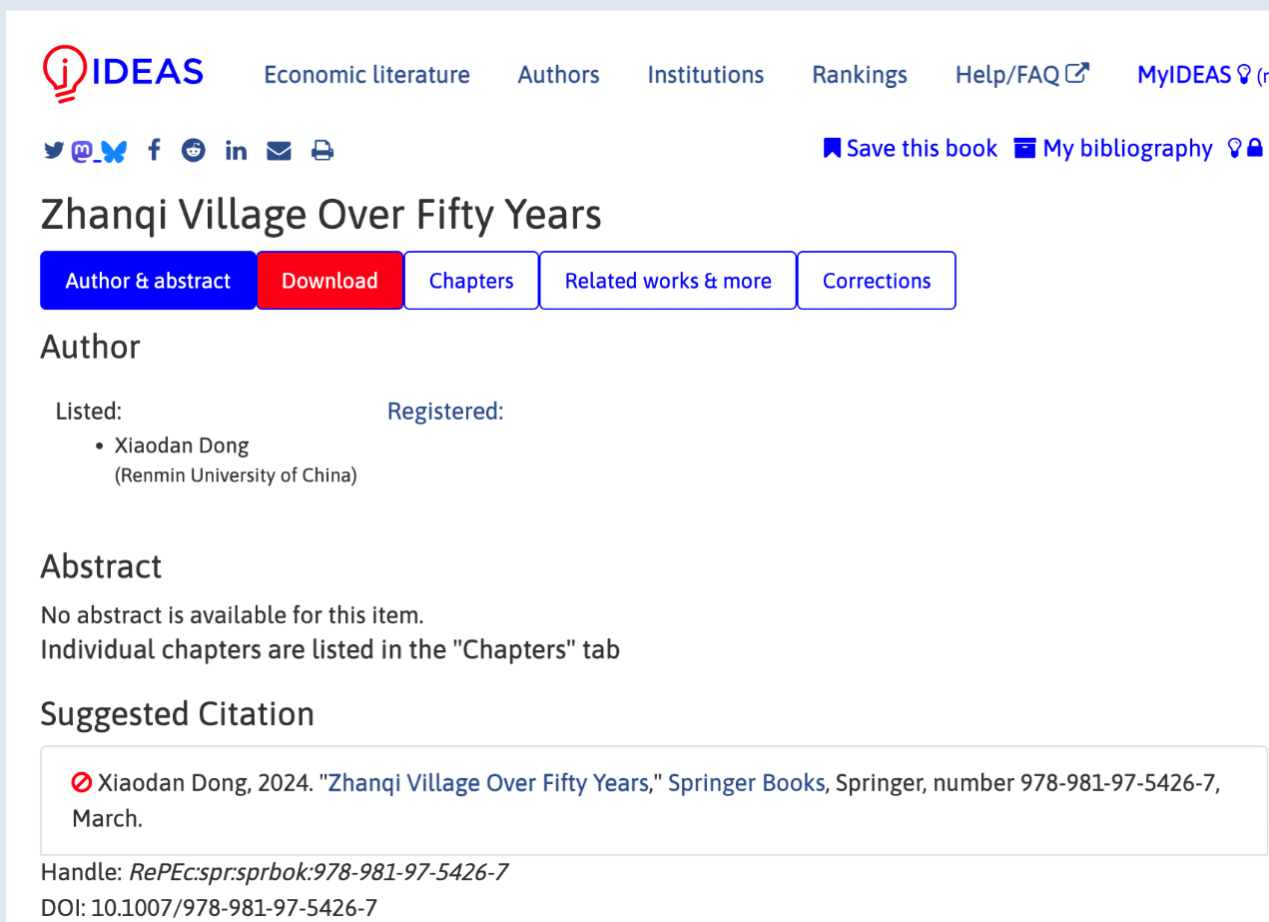
Vivid English Account of China’s Rural Revitalization Officially Released

The academic work Zhanqi Village Over Fifty Years: The Micro-Foundation of Chinese De-dependency by Associate Professor Dong Xiaodan from our school was recently published by Palgrave Macmillan, a subsidiary of Springer Nature.
Set against the macro-background of China’s development since 1949, the book reveals to the world the unique experience and wisdom behind China’s rise from a developing nation through the transformative journey of an ordinary village in western Sichuan over half a century. This marks another significant contribution by the author’s team to narrating China’s stories and amplifying China’s voice.
The book seamlessly integrates grand national strategies with vivid individual narratives, offering the international community an authentic and grounded perspective on China’s path to modernization. Based on rigorous macro-level analysis and micro-level fieldwork in Zhanqi Village, Pidu District, Chengdu, Sichuan Province, it systematically documents the village’s evolution—from post-liberation agricultural collectivization and rural enterprise development to land resource diversification and the "Three Transformations" reform driving rural revitalization. The work details the village’s struggles and breakthroughs in transitioning from agriculture to industrialization and ecological sustainability, highlighting how grassroots cadres and villagers integrated resources and innovated systems through social mobilization. They overcame challenges including weak infrastructure, unfavorable location, capital shortages, talent gaps, and ecological constraints, achieving a historic leap from "no woman would marry into Zhanqi Village" to a "model village for rural revitalization."
Through this longitudinal study, the book not only showcases the evolving resilience and ingenuity of rural Chinese society but also sheds light on common challenges and solutions for developing nations in areas like industry-agriculture relations, urban-rural dynamics, sustainable development, and common prosperity. Its analysis of the synergistic "government-community-market" mechanism and the innovative "Three Transformations" reform (turning resources into assets, funds into shares, and farmers into shareholders) provides a compelling Chinese model for Global South countries seeking to enhance social cooperation and resource sovereignty.
The book is an adapted version of the author’s Chinese publication One Village’s Endeavor: 1965–2020 (Peking University Press, 2021). Since its release, print and digital editions have been acquired by libraries at Harvard University, Stanford University, The Chinese University of Hong Kong, and others. It was also selected for China’s National Press and Publication Administration’s "Rural Library Project" and supported by the "Classic China International Publishing Project" and "Silk Road Book Project." Zhanqi Village Over Fifty Years, funded by the "Classic China International Publishing Project," includes additional comparative notes for international readers, facilitating deeper global understanding of China’s rural revitalization narrative and fostering cross-cultural dialogue.
The book is now available worldwide via Amazon, Springer, and other platforms in both print and e-book formats. It has been cataloged by the National Library of Australia and IDEAS—the largest economics-focused bibliographic database.
Background
The School of Agricultural Economics and Rural Development at Renmin University of China has long been dedicated to research on agriculture, rural areas, and farmers ("sannong"). Its findings have garnered high-level recognition from national leaders and informed critical policymaking for poverty alleviation and rural revitalization, playing an indispensable role in advancing China’s rural development.
Palgrave Macmillan, a renowned publisher in humanities and social sciences, specializes in fields such as politics, history, literary criticism, business management, and economics. Many of its titles are regarded as authoritative references.





